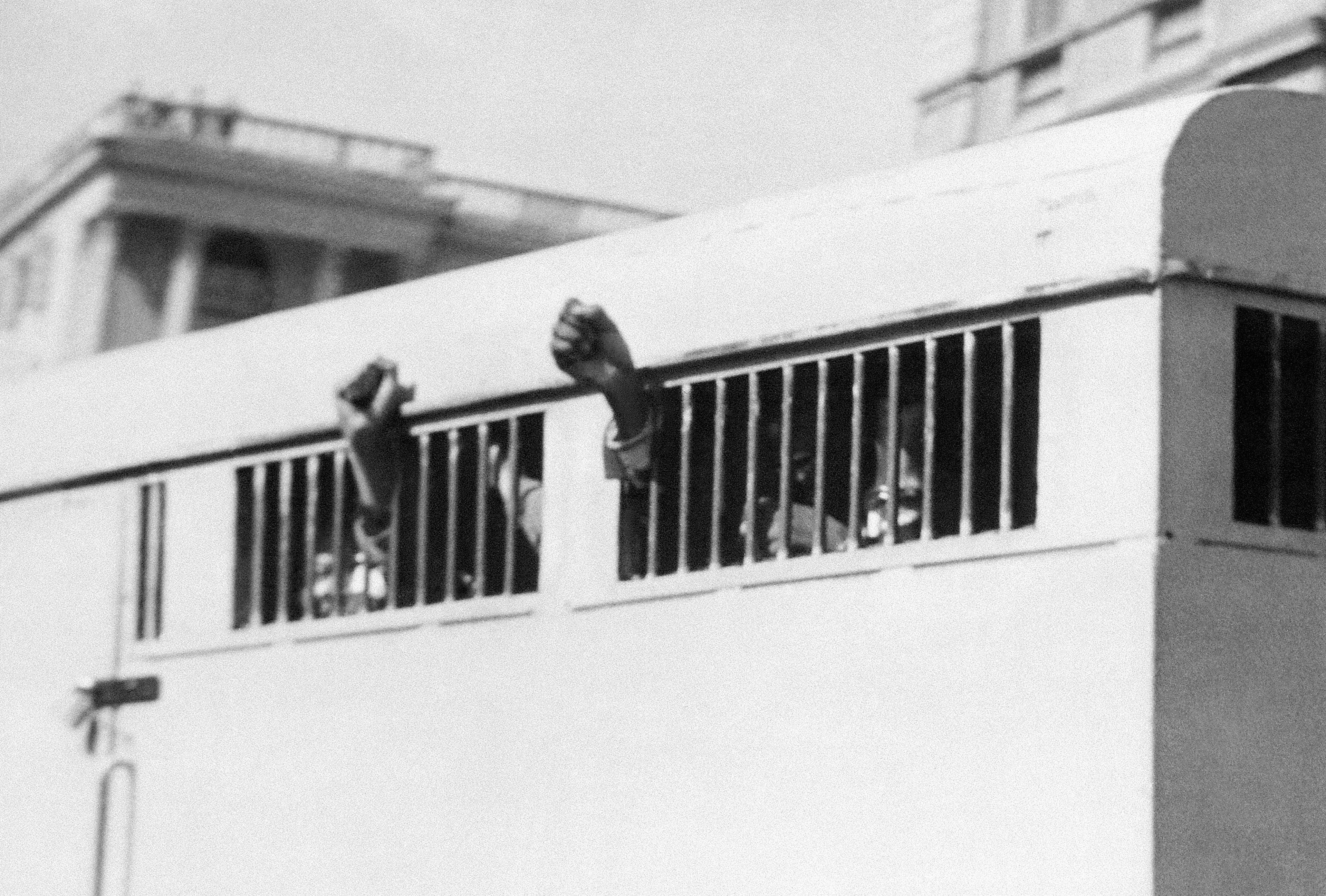Nelson Mandela, revered globally for his commitment to democracy, social justice, and reconciliation, was a pivotal figure in the dismantlement of apartheid in South Africa. His life and career were marked by a series of significant milestones that contributed to not just South African history, but also had far-reaching global impacts.
Early Involvement with ANC and Formation of the ANC Youth League

Mandela's political journey began when he joined the African National Congress (ANC) in 1944. He co-founded the ANC Youth League (ANCYL) in the same year, intending to invigorate the ANC with new energy and radical approaches to fighting apartheid[1][2][3]. Mandela and his colleagues advocated for a mass-based approach and called for civil disobedience, strikes, and boycotts to oppose apartheid laws[1][3].
Establishing the First Black Law Firm in South Africa
In 1952, with fellow ANC member Oliver Tambo, Mandela established South Africa's first black law practice in Johannesburg. The law firm provided affordable and often free legal advice to many black South Africans who were victims of apartheid laws[1][2][3][6]. Their work also involved addressing human rights abuses and excessive force by police, which further underscored Mandela's commitment to social justice[1][6].
The Defiance Campaign and Freedom Charter
Mandela played a significant role in the Defiance Campaign of 1952, urging nonviolent resistance against apartheid laws[2][7]. This campaign mobilized tens of thousands of people to disobey unjust laws, though it led to Mandela being sentenced to nine months in prison for his activities[1].
In 1955, Mandela was instrumental in drafting the Freedom Charter, a document that laid out a vision for a nonracial and democratic South Africa[2][4]. This charter became a cornerstone for the broader anti-apartheid movement.
Rivonia Trial and Imprisonment

Mandela’s activism made him a target for the apartheid regime. In 1962, after returning from guerrilla warfare training in Algeria, Mandela was arrested and sentenced to five years in prison for inciting strikes and leaving the country without permission[2][4][7]. His imprisonment intensified in 1963 when he and several others were tried for more severe charges, including sabotage and treason, during the Rivonia Trial. Mandela’s stirring speech from the dock, where he proclaimed his readiness to die for his ideals of equality and democracy, brought international attention to his cause[2][4][7]. He was sentenced to life imprisonment on June 12, 1964[1][2][4][7].
Release and Role in Ending Apartheid

Nelson Mandela spent 27 years in prison, most of which were on Robben Island[2][6][7]. Despite harsh conditions, he emerged as a symbol of resistance against apartheid. International pressure and growing internal resistance led to his release on February 11, 1990[4][7].
Upon his release, Mandela resumed his role as a leader of the ANC and negotiated with the South African government to end apartheid[4][6]. His efforts were pivotal in leading to the agreement by F.W. de Klerk to lift the ban on the ANC and other political organizations, marking the start of significant political reforms in South Africa[1][4][7].
Becoming the First Black President of South Africa

In the first democratic elections held on April 27, 1994, Mandela led the ANC to a sweeping victory, becoming the first black president of South Africa[1][3][4][6]. His presidency was marked by efforts to dismantle the remnants of apartheid, promote reconciliation, and foster economic development. One of his significant initiatives was the establishment of the Truth and Reconciliation Commission, chaired by Archbishop Desmond Tutu, to address and heal the wounds of apartheid[1][2][3][4][6].
Promoting Reconciliation and Economic Development
Mandela’s presidency was characterized by policies aimed at improving the lives of black South Africans. He introduced programs under the Reconstruction and Development Program (RDP) and later the Growth, Employment and Redistribution (GEAR) strategy, which focused on housing, healthcare, and employment[1][6]. Mandela also sought to maintain economic stability and attract foreign investment to support these initiatives[1][2].
Nobel Peace Prize and Global Advocacy

In recognition of his efforts in dismantling apartheid and fostering peace and reconciliation, Mandela was awarded the Nobel Peace Prize alongside F.W. de Klerk in 1993[1][3][4][7]. He continued to champion human rights and social justice globally even after his presidency, establishing several foundations, including the Nelson Mandela Foundation, to continue his work in education, healthcare, and rural development[1][3][4][7].
Legacy
Nelson Mandela’s legacy is one of unwavering commitment to the principles of equality, justice, and reconciliation. His leadership and vision transformed South Africa from an apartheid state to a multiracial democracy and inspired countless individuals and movements worldwide to fight for these same principles. Through his life's work, Mandela demonstrated that true leadership is characterized by empathy, resilience, and an unwavering commitment to the betterment of humanity.
In summary, Mandela's key achievements include forming the ANC Youth League, establishing the first black law firm in South Africa, leading the Defiance Campaign and the drafting of the Freedom Charter, enduring long-term imprisonment and subsequent release, negotiating the end of apartheid, becoming South Africa's first black president, promoting national reconciliation, and receiving the Nobel Peace Prize[1][2][3][4][6][7].
Get more accurate answers with Super Pandi, upload files, personalized discovery feed, save searches and contribute to the PandiPedia.
Let's look at alternatives:
- Modify the query.
- Start a new thread.
- Remove sources (if manually added).